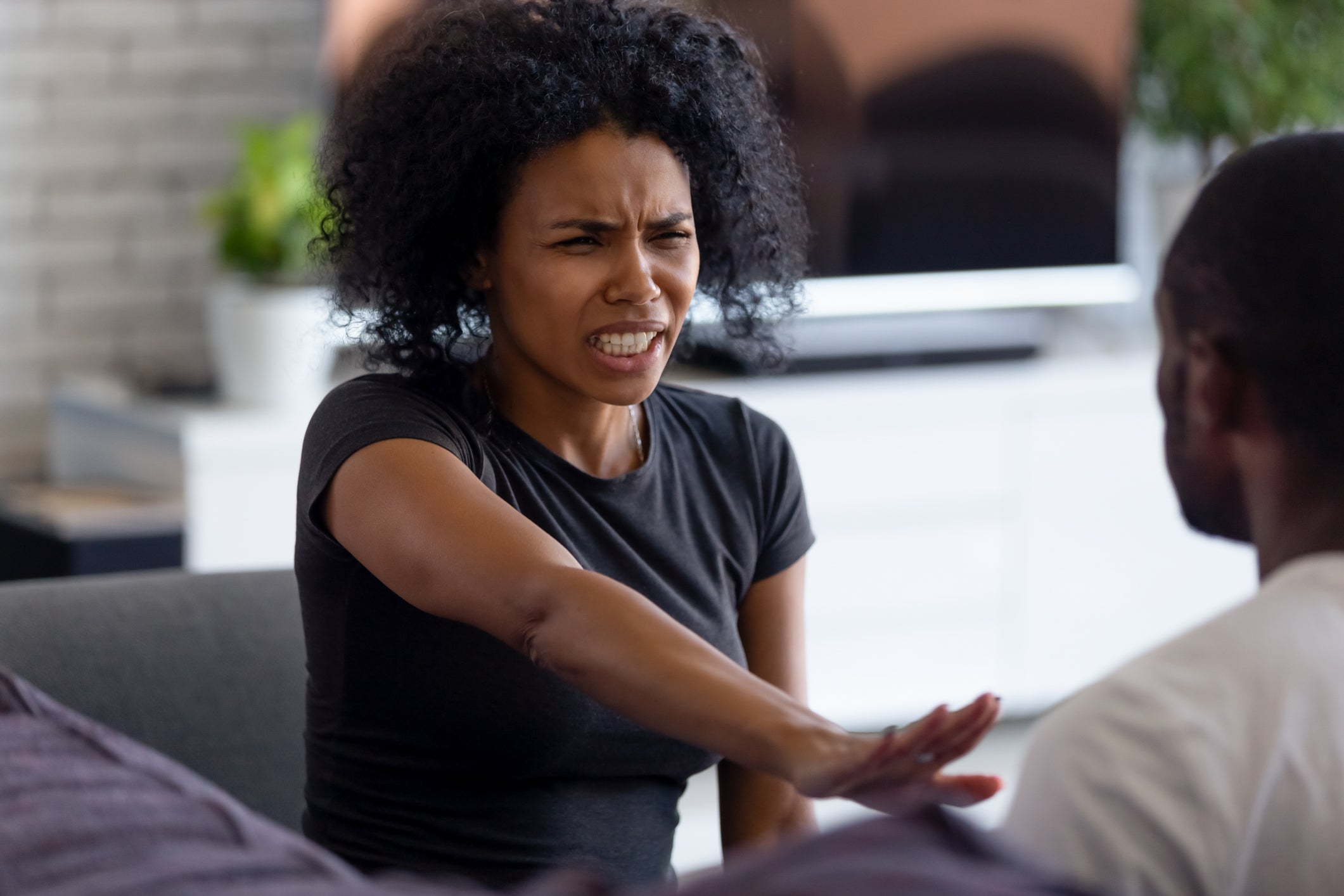
Black women have enough to deal with. And for many of us, contending with the burdens of being associated with potentially problematic men is on the list. The era of #MeToo has ushered in much-needed awareness and accountability as it relates to a woman’s right to be free of sexual assault, abuse, harassment and hostility. The movement is to be applauded and expanded.
However, a perhaps unintended byproduct of the #MeToo movement is an inevitable dilemma women can find themselves in. How should we react when we are professionally involved with men who are facing accusations of wrongdoing? The issues are deep, complicated and severely consequential.
What’s annoyingly unsurprising is that men don’t even have to think about this — let alone deal with it. Men are rarely ever called to speak on, defend, account for, condemn, cape for, or even explain their associations with potentially problematic men. We often only require women to carry this burden. Women must put out statements, hold press conferences, and publicly account for their decisions around the impossible/ridiculous choice of advancing their own careers or undermining that progress by cutting ties with their male professional colleagues all because of the man’s alleged actions. It’s unjust, sexist, and in short, it sucks.
But as the saying goes — it is what it is. Black women are stuck with the unenviable task of performing a taxing, but necessary classic cost-benefit-analysis. First, we have to decide what is the pure value of being associated with the particular man in question. How much does his association advance our professional position? Can he promote us inside a company, can he provide exposure, promotion and access to his platform thus enabling us to do our job at a higher level, or perhaps he can select us as his running mate in the most consequential presidential election of our generation?
After we have adequately assessed the value of being associated with the man in question, we have to weigh two different costs:
First, what’s the cost of cutting ties with the man? What opportunities are lost by severing the professional relationship with a man that is in a position of authority or otherwise able to advance your professional cause?
Second, what is the professional and social cost of continued association in the wake of man’s public accusation of wrongdoing? Are you going to be labeled a hypocrite, sell-out, enabler, or other pejorative term that makes you proximately responsible for this man’s alleged actions? No matter how fair or unfair that proximate responsibility is — it ain’t going anywhere. Therefore, it must be factored into our equation.
Oh, I almost forgot. There is a compounding factor we must weigh when the potentially problematic man is a Black man. Black women have specific and notoriously protective instincts around Black men. Those instincts are pure and are rooted in horrific, systematic oppression against our fathers, husbands, brothers and sons. Therefore, when a Black woman confronts the alleged wrongdoing of a Black man, the culture often feels a way about her. No matter the guilt or innocence of the Black man involved there is typically spoken or unspoken subtext that the Black woman is part of the problem, part of the pile-on that always comes for Black men. This is often contrasted with the treatment of their equally problematic white male counterparts. It’s complex, it’s historic, and it’s very real.
My take on this dilemma is surprisingly simple. In a world where men remain atop every professional industry, women (and especially Black women who trail behind our white female counterparts in every measurable professional metric) simply cannot afford to perform purity tests as it relates to the men we professionally associate with. Don’t mistake that statement as a permission slip for toxic male behavior. Instead, it’s a simple truth.
Of course, we want to live in a culture where women with credible accusations are believed. Sadly, most #MeToo allegations never produce a real investigation or reliable finding of fact. Absent these definitive tools that would assist in evaluating actual wrongdoing, we are left to perform these calculations based on the allegations alone.
The two C’s are very helpful here: credibility and corroboration. As best you can evaluate the credibility of the people involved. Corroboration demands a look at what other facts or witnesses can support or contradict the alleged behavior. Are there other women with the same claim and similar facts? Are there eyewitnesses or videotape? Evaluating credibility and corroboration are essential to this entire process. I speak on this and other tools to use for navigating the complexity of this part of the #MeToo era in the Truth & Consequences: Sexual Harassment chapter of my book, ‘Pretty Powerful’.
Humanity also requires us to weigh a final factor: rehabilitation. In some instances a man may admit to the wrongdoing, account for his destructive behavior, expresses sincere remorse — and my personal favorite — demonstrate his ability to use his position or platform for the eradication of rape culture, sexual harassment, or other mistreatment of women. Then, the possibility of rehabilitation should be considered. There should be real consideration around the value of participating in a man’s rehabilitation process. No, we absolutely do not have to. But we should seriously think about it.
Since we as Black women must continue to carry the unique burden of accounting for the men in our professional orbit, I suggest we continue to perform our own individual cost-benefit-analyses. There will always be pushback, criticism and public chatter about however we chose to deal with this impossible dilemma. But by taking ownership of our process, and being educated and intentional about how we handle it, we take back a little bit of our power.
Eboni K. Williams is a co-host on REVOLT TV’s ‘State of the Culture’.She is also an attorney, bestselling author, and board member for Safe Horizon, the country’s leading victim’s assistance organization.